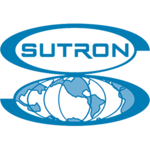Description

Adverity

Salesforce Marketing Cloud Intelligence (formerly Datorama)
Comprehensive Overview: Adverity vs Salesforce Marketing Cloud Intelligence (formerly Datorama)
Adverity and Salesforce Marketing Cloud Intelligence (formerly known as Datorama) are both prominent platforms in the marketing intelligence and data integration landscape. They cater to businesses looking to streamline their marketing data processes and gain insights for better decision-making.
a) Primary Functions and Target Markets
Adverity:
-
Primary Functions:
- Data Integration: Adverity offers strong data integration capabilities, enabling users to connect various data sources such as social media, CRM, and advertising platforms into a centralized database.
- Data Visualization: The platform provides tools for creating dashboards and visualizations, helping users interpret vast amounts of data easily.
- ETL (Extract, Transform, Load): Adverity supports ETL processes, aiding in the transformation of raw data into structured formats.
- Data Enrichment: Enhances data by allowing users to apply metrics, KPIs, and custom calculations.
-
Target Markets:
- Marketing Agencies: Providing services to manage diverse client campaigns.
- Corporate Marketing Teams: Internal teams aiming to centralize and leverage their marketing data for insights.
- E-commerce and Retail: Companies looking to optimize digital and offline channel performance.
Salesforce Marketing Cloud Intelligence (Datorama):
-
Primary Functions:
- Data Integration and Harmonization: Like Adverity, it connects disparate data sources into a unified platform for cohesive data analysis.
- AI-Powered Insights: Offers Gartner Magic Quadrant-recognized AI capabilities for predictive insights and optimization.
- Extensive Reporting: Allows businesses to create customized reports and dashboards tailored to specific metrics and KPIs.
- Cross-Channel Analytics: Helps users understand the performance across various marketing channels.
-
Target Markets:
- Large Enterprises: Leveraging extensive resources to optimize complex marketing environments.
- Advertising Agencies: Managing and analyzing multiple campaigns for different clients.
- Digital Marketers: Businesses with a strong focus on digital channel optimization.
b) Market Share and User Base
Comparing these products in terms of overall market share can be complex due to the diversity in deployment scales and regional preferences. However:
-
Salesforce Marketing Cloud Intelligence generally has a larger market presence, particularly within large enterprises. Its integration with Salesforce’s ecosystem is a significant advantage, appealing to businesses already using Salesforce products.
-
Adverity is gaining traction, especially among mid-sized and digital-first companies looking for flexible and scalable solutions. Its user base is growing as businesses increasingly invest in comprehensive digital marketing strategies.
c) Key Differentiating Factors
-
Integration with Salesforce Ecosystem (Salesforce Marketing Cloud Intelligence): A critical advantage of Datorama is its seamless integration with the wider Salesforce ecosystem, offering unified customer data insights across platforms like Salesforce CRM and other Salesforce clouds.
-
AI and Machine Learning: Both platforms use AI, but Salesforce Marketing Cloud Intelligence leverages its AI engine, Einstein, for advanced predictive analytics and automation, presenting a significant advantage for users interested in cutting-edge technology.
-
Flexibility and Customization (Adverity): Adverity offers considerable flexibility in terms of data connection and visualization customization, which can be a plus for companies with niche or specific integration needs.
-
Ease of Use and Implementation Time: Adverity is often praised for its user-friendly interface and relatively fast deployment timelines, making it an attractive option for businesses looking to quickly implement a solution.
-
Pricing Models: Salesforce products, including Marketing Cloud Intelligence, are generally positioned at a higher price point, reflecting their extensive feature set and enterprise-focused capabilities. Adverity offers more scalable pricing, making it accessible to smaller firms.
In conclusion, the choice between Adverity and Salesforce Marketing Cloud Intelligence largely depends on the organization's size, existing infrastructure, integration needs, and budget. Both platforms offer robust solutions for marketing intelligence, with distinct strengths catering to different segments of the market.
Contact Info

Year founded :
2015
+43 1 8903155
Not Available
Austria
http://www.linkedin.com/company/myadverity

Year founded :
Not Available
Not Available
Not Available
Not Available
Not Available
Feature Similarity Breakdown: Adverity, Salesforce Marketing Cloud Intelligence (formerly Datorama)
When comparing Adverity and Salesforce Marketing Cloud Intelligence (formerly Datorama), it's important to understand the similarities and differences in their feature sets, user interfaces, and any unique capabilities they offer.
a) Core Features in Common
-
Data Integration:
- Both platforms offer robust data integration capabilities, allowing marketers and analysts to connect to a wide range of data sources, including social media platforms, advertising channels, CRM systems, and more.
-
Data Visualization and Dashboards:
- They both provide powerful data visualization tools that allow users to create custom dashboards and reports. This is crucial for understanding and analyzing marketing performance at a glance.
-
Automated Reporting:
- Automation features in both platforms streamline the reporting process, enabling users to schedule regular updates and distribute them effortlessly.
-
Data Cleansing and Transformation:
- Both platforms offer data transformation tools to clean and manipulate data, ensuring accuracy and consistency in reports and analyses.
-
Multi-Channel Attribution:
- Features that allow users to track and attribute conversions across multiple channels are present in both platforms, helping marketers understand the impact of each touchpoint.
b) User Interface Comparison
-
Adverity:
- Known for its intuitive and user-friendly interface, Adverity's UI emphasizes ease of use with drag-and-drop functionalities and clear visualizations. Its dashboard is designed to be easily customizable, which caters well to marketers and analysts who need flexibility in data presentation.
-
Salesforce Marketing Cloud Intelligence (Datorama):
- Datorama's UI is also comprehensive but may feel more complex due to the depth of its features and integrations, particularly for users who are not as experienced. It is highly customizable, and its integration with the Salesforce ecosystem allows for more advanced functionalities, although this might come with a steeper learning curve.
c) Unique Features
-
Adverity:
-
Data Harmonization: Adverity emphasizes advanced data harmonization, automatically transforming and mapping data into a coherent format. This is particularly beneficial for organizations dealing with vast and diverse datasets.
-
Custom Connectors: Adverity allows users to build custom connectors for new data sources, which can be a significant advantage for organizations with unique or proprietary data sources.
-
Augmented Analytics: Adverity incorporates machine learning to provide predictive analytics and insights, which can help marketers make data-driven decisions more effectively.
-
-
Salesforce Marketing Cloud Intelligence (Datorama):
-
Salesforce Ecosystem Integration: As part of the Salesforce suite, Datorama offers deep integration with Salesforce CRM and other Salesforce tools, which is advantageous for users already in the Salesforce ecosystem.
-
Advanced AI Capabilities: Datorama applies AI to offer insights and data storytelling features, which help users make sense of their data in a more narrative form.
-
Cross-Channel Insights: It provides comprehensive insights across channels with the ability to drill down into the performance of each channel in detail, leveraging AI to optimize media spend and strategy.
-
Ultimately, choosing between Adverity and Salesforce Marketing Cloud Intelligence will depend on the specific needs of your organization, including existing tech infrastructure, familiarity with the Salesforce ecosystem, and the complexity of your data integration requirements.
Features

Data Visualization
Data Management
Advanced Analytics
Data Integration

Insights and Analytics
Data Integration
Collaboration Tools
Campaign Management
Best Fit Use Cases: Adverity, Salesforce Marketing Cloud Intelligence (formerly Datorama)
Adverity and Salesforce Marketing Cloud Intelligence (formerly Datorama) are both data analytics and marketing intelligence platforms that help businesses consolidate and analyze their marketing data. However, they cater to different needs and types of businesses. Here's a breakdown:
Adverity
a) Best Fit Use Cases
- Types of Businesses or Projects:
- SMEs and Agencies: Adverity tends to be a great fit for small to medium-sized enterprises and marketing agencies that need a flexible and scalable analytics solution.
- Data-Driven Marketing Teams: It is suitable for teams that need to integrate various marketing datasets quickly and require automated and customizable data transformation capabilities.
- Businesses with Diverse Data Sources: Companies that rely on multiple data sources and need to unify them in one platform will benefit from Adverity's wide range of data connectors.
d) Industry Verticals or Company Sizes
- Focus on Versatility: Adverity is designed to cater to a wide range of industries, including retail, eCommerce, and media. Its strength lies in its ability to handle a variety of data sources, which makes it versatile across different sectors.
- Scalability for Growing Companies: It's particularly useful for growing companies that might not have the extensive resources or budgets of larger corporations but still need robust data management and analytics capabilities.
Salesforce Marketing Cloud Intelligence (formerly Datorama)
b) Preferred Scenarios
- Large Enterprises: Datorama is often the choice for larger enterprises that have complex marketing operations and require a comprehensive solution for harmonizing data across many channels.
- Comprehensive Marketing Analytics: Organizations looking for an integrated approach to marketing analytics will find Datorama's seamless integration with Salesforce and other CRM tools advantageous.
- Real-Time Dashboarding and Reporting: Businesses that need real-time insights and advanced visualization capabilities for their marketing data will appreciate Datorama's offerings.
d) Industry Verticals or Company Sizes
- Enterprise-Level Solutions: Datorama often targets enterprise clients, particularly those in industries with advanced marketing needs, such as telecommunications, finance, and large retailers.
- Integration with Salesforce Products: Companies already using Salesforce products may prefer Datorama due to its direct integration capabilities, enhancing the value of existing Salesforce investments.
Key Differences
- Focus and Scale: Adverity's focus on flexibility and ease of use makes it well-suited for SMEs and agencies, whereas Salesforce Marketing Cloud Intelligence offers an enterprise-grade solution with robust integration and real-time capabilities, aligning with the needs of larger corporations.
- Integration and Specialization: Salesforce Marketing Cloud Intelligence stands out for businesses requiring deeper integrations with Salesforce's ecosystem, while Adverity excels in providing a broad range of data connectors and a user-friendly interface for data unification and visualization.
Both platforms have unique strengths, so the choice between them often depends on the specific needs, size, and existing infrastructure of the business in question.
Pricing

Pricing Not Available

Pricing Not Available
Metrics History
Metrics History
Comparing teamSize across companies
Conclusion & Final Verdict: Adverity vs Salesforce Marketing Cloud Intelligence (formerly Datorama)
When analyzing Adverity and Salesforce Marketing Cloud Intelligence (formerly Datorama) to determine which offers the best overall value, several factors need to be considered, such as pricing, features, integrations, scalability, ease of use, and customer support. Both platforms are powerful tools for marketing data integration and visualization, but they cater to different needs and user experiences.
Conclusion
a) Best Overall Value:
The best overall value depends on the specific needs and context of the user or company.
- Adverity tends to offer greater flexibility and cost-effectiveness for small to medium-sized enterprises (SMEs) thanks to its straightforward pricing model, ease of use, and rich features tailored to these organizations.
- Salesforce Marketing Cloud Intelligence (Datorama) is typically more beneficial for larger enterprises that require extensive customizations, integration with other Salesforce products, and advanced analytic capabilities.
b) Pros and Cons:
Adverity:
-
Pros:
- User-friendly interface with a simple setup process, suitable for SMEs.
- Highly customizable dashboards and data visualization options.
- Strong data integration capabilities with over 600 pre-built connectors.
- Competitive pricing that offers good value for smaller businesses.
- Responsive customer support and robust community resources.
-
Cons:
- Might lack some advanced features that large enterprises demand.
- Scalability could be a limitation compared to more extensive platforms like Datorama.
- Limited brand recognition which may be a concern for some users.
Salesforce Marketing Cloud Intelligence (Datorama):
-
Pros:
- Seamless integration with other Salesforce products, ideal for companies already using Salesforce.
- Advanced analytics capabilities, including AI-driven insights and predictive analytics.
- Suited for handling vast amounts of data from numerous channels.
- Highly scalable, appropriate for global enterprises.
- Strong support system and vast array of resources within the Salesforce ecosystem.
-
Cons:
- Higher cost, which may not be affordable for smaller businesses.
- Complexity in setup and use, which may require dedicated training.
- Longer implementation times and potentially more dependency on IT teams.
c) Specific Recommendations:
For SMEs:
- Adverity is recommended for small to medium-sized businesses due to its affordability, ease of use, and sufficient feature set for typical marketing needs. These companies might benefit from starting with Adverity to gain value without the higher costs or complexity of Datorama.
For Large Enterprises:
- Salesforce Marketing Cloud Intelligence (Datorama) is ideal for larger organizations with complex marketing strategies and a need for advanced analytics. Companies deeply embedded in the Salesforce ecosystem will also find significant benefits from using Datorama to maintain compatibility and continuity across platforms.
For Companies in Transition:
- Organizations that foresee scaling rapidly or expect to significantly increase their data complexity may consider starting with Adverity for cost-effectiveness but later transitioning to Datorama as their needs grow.
Ultimately, the decision should be based on a careful assessment of current business needs, future growth plans, and budget considerations. Conducting a trial with both platforms could also provide practical insights into which tool aligns more closely with the business’s operational requirements.
Add to compare
Add similar companies




